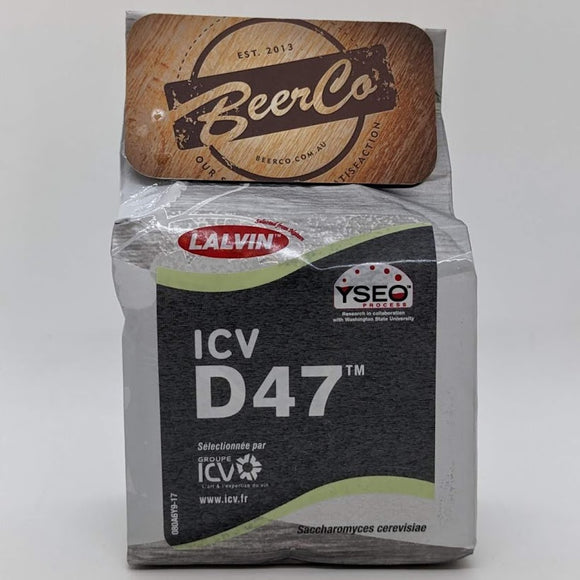Lalvin D47™ has been isolated in France in the Côtes-du-Rhône area by the ICV (Institut Coopératif du Vin) to produce full-bodied barrel-fermented Chardonnay and other white varietal grapes. Due to the release of polysaccharides into the must during fermentation, this yeast contributes to a round, soft palate with good weight.
This process can also help to stabilize aromatic compounds. Lalvin D47™ is highly recommended to produce premium, barrel fermented Chardonnay. When left on lees, spicy, tropical and citrus notes will develop and the wine is then said to have a silky persistence. This strain is very compatible with malolactic-bacteria.
Lalvin D47™ is widely used in Modern Mead Making and can also be used to ferment Hard Seltzers and other sugar based beverages.
Pack Size:
- 500g Bricks
GRAPE VARIETY PAIRING
Chardonnay, Gewurztraminer, Riesling, Roussanne, Sauvignon Blanc, Viognier.
WINE STYLES
Complex white and Rosé wines with citrus and floral notes. Useful for a wide range of applications, including mead and fruit cider fermentations.
AROMA
- Tropical fruit and banana flavor.
ALCOHOL TOLERANCE
- Up to 15%
FERMENTATION RANGE
- 15-30°C (59-86°F)
INOCULATION RATE
- 0.2-0.4g/L
Microbiological Properties:
Saccharomyces cerevisiae var. cerevisiae
Typical analysis (in compliance with OIV codex):
Viable yeast > 1010 CFU/g
Dry matter > 92 %
Oenological Properties:
- Short lag phase and moderately vigorous fermentation
- Low relative nitrogen demand (under controlled laboratory conditions)
- Very low H2S production
- Alcohol tolerance of up to 15% v/v (depending on fermentation conditions)
- Low SO2 production
- Fermentation temperature: 15-30°C (59-86°F)
- Competitive killer factor: yes
- Malolactic-bacteria compatibility: very high
- Low foam producer
Usage:
1. Rehydrate the yeast in 50ml of water, at a temperature between 35-37°C (95-98.6°F).
2. Dissolve by gently stirring and wait for 20 minutes.
3. Add the must. The difference in temperature between the must to be inoculated and the rehydration medium should not be higher than 10°C (if necessary, acclimatize the temperature of the medium by slowly adding must).
4. The total rehydration time should not exceed 45 minutes.
5. It is crucial that a clean container is used to rehydrate the yeast.
6. Rehydration in must is not recommended.

